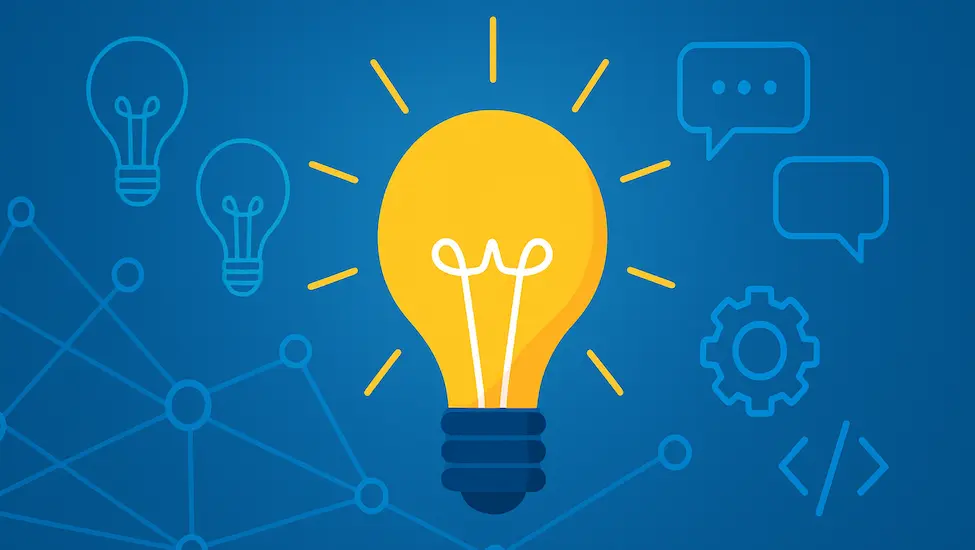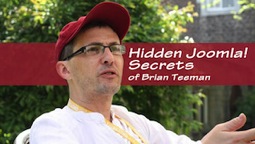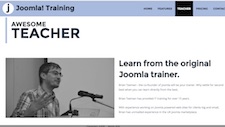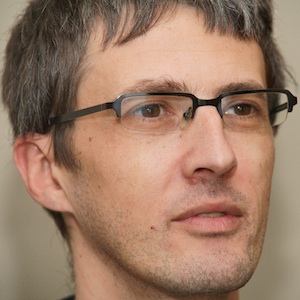In a world overflowing with news, social media, and constant online chatter, it can be hard to focus on what truly matters. Eleanor Roosevelt’s famous quote reminds us where our attention is best spent and why it is especially relevant for open source communities like Joomla.
“Great minds discuss ideas.
Average minds discuss events.
Small minds discuss people.”
– Eleanor Roosevelt
This quote has been circulating for years. It's shared on social feeds, pinned onto motivational posters, used as a clever comeback, and occasionally misattributed (as all good quotes eventually are). But lately, I’ve been thinking about it through the lens of a modern digital culture that is shaped by social media, open source communities, and the constant hum of online discourse.
And the more I think about it, the more relevant it becomes.
Because here’s an uncomfortable truth:
The internet is brilliantly engineered to keep us discussing people.
Not ideas.
Not systems.
Not possibilities.
People.
The Algorithm Loves “Small Minds”
Spend enough time scrolling and you’ll see how the digital world nudges us:
- This person said something ridiculous.
- That maintainer broke backwards compatibility.
- This developer ranted about a commit.
- That project lead responded poorly.
Personalities outperform principles.
Drama outperforms depth.
Reactions outperform reflection.
It’s not that people are shallow. The social media platforms reward the kind of engagement that keeps us talking about individuals rather than ideas.
But this is where Roosevelt’s quote becomes surprisingly radical:
In a world built to drag us into conversations about people, choosing to discuss ideas is an act of rebellion.
Ideas require time.
Ideas require nuance.
Ideas require listening.
They are not algorithm friendly. Yet they are the only thing that genuinely moves communities and technologies forward. And nowhere is that more obvious than in open source.
Ideas, Events, People and the Open Source Community in Between
Open source communities such as Joomla are perfect microcosms of Roosevelt’s hierarchy. Every open source project lives at the intersection of ideas, events, and people.
And the type of conversation a community gravitates toward will define and determine its long term health.
Great Minds Discuss Ideas – The Heart of Open Source
Open source was founded on ideas:
- The idea that software should be shared
- The idea that collaboration creates quality
- The idea that transparency matters
- The idea that community is more sustainable than control
Joomla itself was born from one of the strongest ideas in open source history: the belief that the community, not a corporation, should own the project.
Over the years, Joomla has been at its best when conversations revolve around ideas such as:
- How do we make website building more accessible?
- What does a modern, modular Joomla look like?
- How do we improve the contributor experience?
- How can we build a more sustainable ecosystem?
Idea driven conversations invite participation. They energise contributors. They give direction, purpose, and momentum.
When Joomla thrives, it’s because the ideas lead the people and not the other way around.
Average Minds Discuss Events – And Open Source Has Plenty
Events in open source are constant:
- A major release ships (or doesn’t).
- A maintainer steps down.
- A new security issue appears.
- A fork emerges.
- A leadership shakeup makes headlines.
Events Matter
They shape the narrative and force critical decisions.
But they are only helpful when we push beyond “What happened?” into “Why did it happen?”
Consider:
- Joomla’s original fork from Mambo
- The long, thoughtful journey to Joomla 4
- The ongoing evolution of releases and leadership teams
These events were more than just headlines; they were opportunities to revisit the underlying ideas:
- What does openness look like in practice?
- How do we preserve community values while modernising?
- How do we adapt without losing our identity?
Events provide momentum.
Ideas provide meaning.
Small Minds Discuss People – And That’s Where Communities Break
Here’s the part most open source veterans know all too well.
Open source is human. It is messy, volunteer-driven, personality-filled, ego-prone, passionate, brilliant, imperfectly human.
And when the stress rises, discussions can slide from ideas, to events, to people.
That’s when things start to fracture:
- “This person is blocking progress.”
- “That team doesn’t listen.”
- “These maintainers are the problem.”
- “Everything was fine until they arrived.”
- “This leader expects too much.”
Every major open source project has hit this wall. Joomla has seen it too. And every time the conversation shifts from ideas to individuals, the community loses a little:
- A little trust
- A little openness
- A little innovation
- A few contributors who quietly step away
Of course people matter, but:
- Gossip doesn’t build software.
- Blame doesn’t build community.
- Personalities don’t build progress.
Healthy Communities Protect the Idea Space
Strong open source communities know how to keep the focus where it belongs.
They:
- Critique ideas without attacking people
- Reflect on events without spiralling into drama
- Celebrate contributions, not personalities
- Create processes so problems don’t become personal
- Build psychological safety for new contributors
- Value participation more than power
This is why Joomla has survived nearly 20 years while countless other open source projects faded into obscurity and eventually disappeared.
Not because Joomla never had drama.
Not because Joomla never had conflict.
Not because Joomla never faced crises.
But because the ideas were strong enough to outlast the events and outshine the people.
Joomla’s Strength Has Always Been Its Ideas
At its core, Joomla stands on a foundation of powerful ideas:
- Freedom over control
- Community over ego
- Collaboration over hierarchy
- Transparency over secrecy
- Sustainability over short-term wins
The names and faces have changed a hundred times. The events have come and gone, some difficult, some inspiring. But the ideas have been remarkably consistent.
And that is why the project endures.
Choosing Better Conversations
Maybe Roosevelt wasn’t really talking about intelligence.
Maybe she was talking about intention.
Do we want conversations that expand us or shrink us?
That build or tear down?
That energise or exhaust?
In open source, and especially in Joomla, we get to choose:
- Focus on people and the community fractures
- Focus on events and the community reacts
- Focus on ideas and the community grows
If I had to rewrite the quote for Joomla and other open source communities, it might go like this:
Great communities discuss ideas.
Good communities discuss events.
Struggling communities discuss people.
For Joomla’s future, and the future of open source as a whole, the challenge is simple and ongoing:
Protect the idea space.
Feed the conversations that matter.
Choose depth over drama.
That’s where innovation lives.
That’s where new contributors thrive.
That’s where open source shines brightest.






